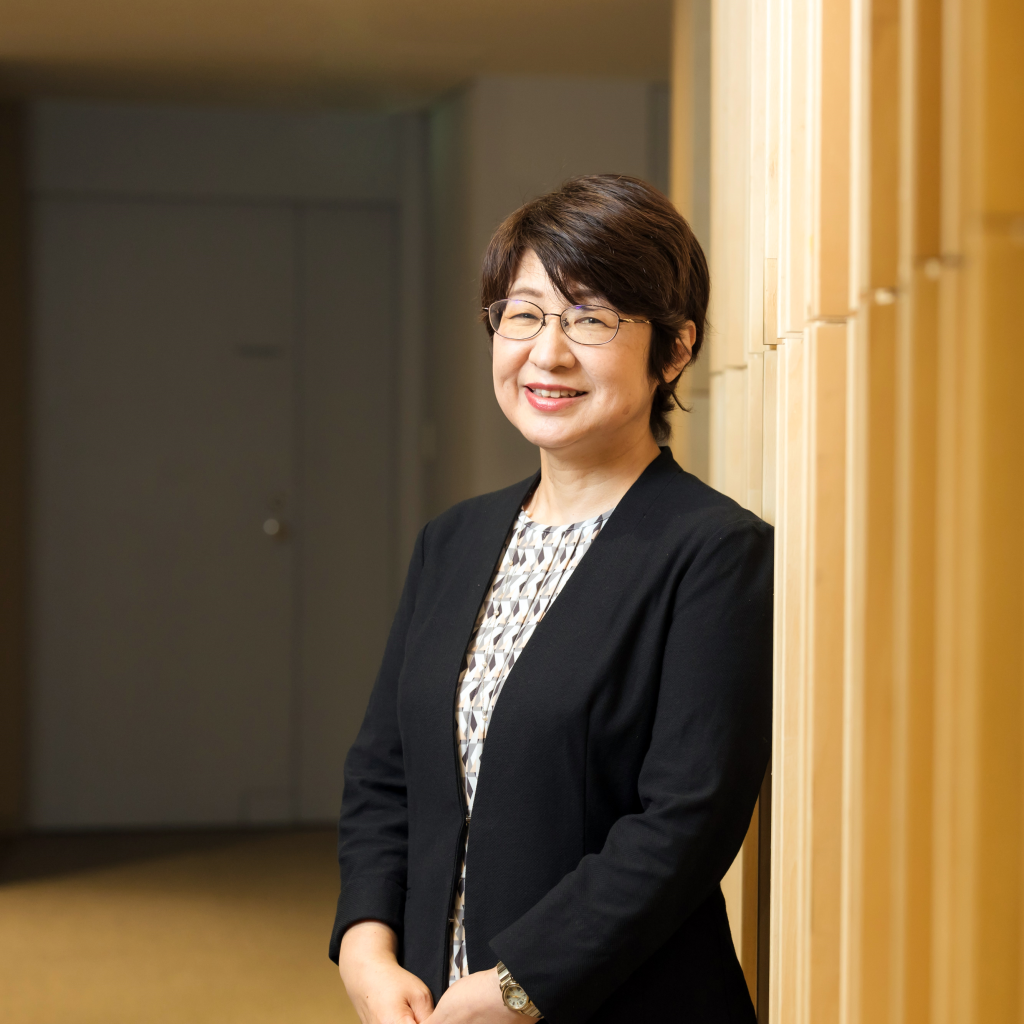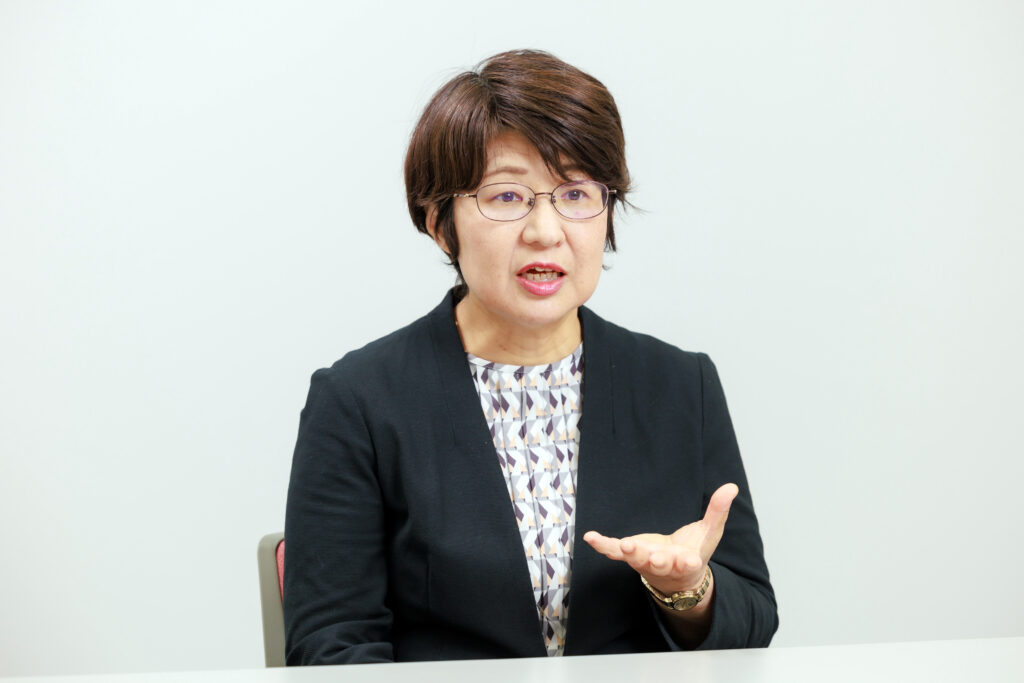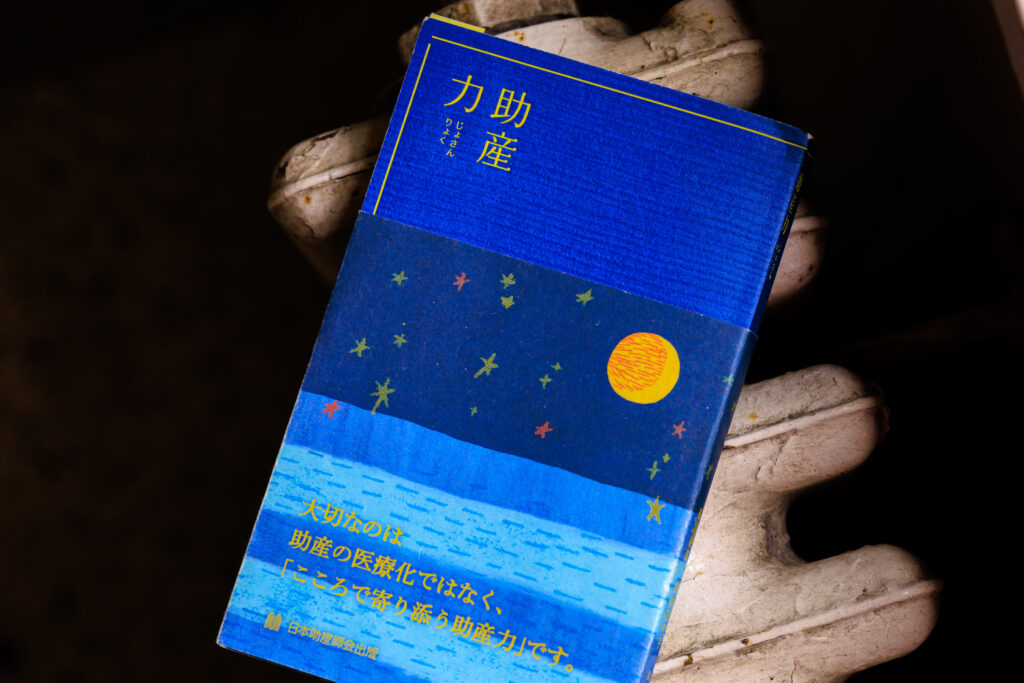
Department of Nursing Professor Shimada Marie’s research theme is postpartum care that supports the health of the mother, parenting and day to day life. From her experience as a midwife, Professor Shimada speaks on the importance of postpartum care and the role of maternity homes and midwives.
I first started being viscerally aware of the importance of postpartum care that supports parenting and the health management of postpartum mothers after graduating from the College of Nursing and beginning my career as a midwife. At that time, though mothers received some newborn baby parenting advice from their birthing facility, once they left and returned home, apart from the basic government services such as home visits for newborns, there was no recognition of the necessity for continued support from medical professionals. However, the truth was that right after returning home, most mothers experienced concern on everything from breastfeeding and how to care for their newborn, to how to care for their own health.
Not so long ago, it was normal in Japan for three generations to live under the same roof. In those times there would usually be someone in the house who could help out or offer advice. However, as times changed and the ratio of nuclear families in metropolitan Tokyo area began to climb, the number of mothers forced to take on the entire responsibility of parenting also rose. The need for continued support after leaving the hospital was obvious upon seeing the realities new mothers face.
Stating opinions at a governmental review conference. Working toward embedding postpartum care into law

Subsequently, the problem of postpartum depression began to receive a great deal of attention, and currently many hospitals focus on mental health care for expectant and nursing mothers, as well as continued support for mothers and babies. Making an effort to offer postpartum care services to mothers and babies up to one year after birth was embedded into the Amended Maternal and Child Health Law as an obligation for municipal governments. The embedding of post-care services into law was something which I contributed my opinion to at a governmental review conference, with an emphasis on my position as the Japanese Midwives Association Chair, and having researched postpartum support for mothers since my student days. So I feel that I have been able to contribute to these successes.
I am always urging students majoring in midwifery in the Department of Nursing to go into the field after graduating. For the acquisition of medical knowledge and skill, nothing beats actual experience. And if they have questions about what they experience in the field or encounter areas they wish to know even more about, that is when I want them to return to graduate school and dive into research. I myself advanced into graduate school after experiencing about a decade of clinical practice. And because of this, I was able to learn methods of resolving various problems I experienced in actual practice, such as ways of gathering data, methods of analysis, and ways of inserting analysis results into actual practice. Nursing is an implementation science. Experiencing the field deepens your research and your ideas.
Instilling maternity homes with small-scale, multipurpose facilities for regional mothers and babies
As a measure to provide even more enhanced postpartum care, I am currently engaged in actions to promote the process of instilling maternity homes with visiting nurse stations specialized in supporting mothers and babies. Postpartum care is generally conducted for a set period until the mother grows accustomed to baby care and parenting, but there are cases which require a longer and deeper level of support, such as mothers with multiple fetuses or low birthweight babies. It would be ideal if regional visiting nurse stations could cover these cases, but currently these stations mainly provide elderly care and cannot be considered as providing sufficient care for mother and child. If there visiting nurse stations specialized in mother and baby care were established in maternity homes, we could provide the appropriate support to mothers and babies who need a higher level of care.
Adding visiting nurse stations to maternity homes would link not only to better support for mothers and babies, but also to the continued existence of maternity homes. Maternity homes should now be more than facilities for birthing. They should also fulfil the role of small-scale and multipurpose facilities that can respond expansively to the needs of mothers and children in the community. As a midwife, and as an educator cultivating the nurses and midwives of the future, I want to continue researching with the target of actualizing a society in which midwives can be even more active.
The book I recommend
“Josanryoku” (The Power of Midwifery)
by Sumio Shin and Kiyoko Okamoto, The Japanese Midwives Association

The authors are an obstetrician-gynecologist and a midwife. This book explains midwifery ideals and policies in an easy to follow and coherent style. I always have students majoring in midwifery read this book before being admitted to the school, and I use it in class as well.
-
Marie Shimada
- Professor
Department of Nursing
Faculty of Human Sciences
- Professor
-
After graduating from the College of Nursing at St. Luke’s College of Nursing (currently St. Luke’s International University), she received her M.D. from the university’s Graduate School of Nursing Science, and building on 10 years of experience as a midwife, Professor Shimada became a Sophia University educator. She has served in her present professor position since 2011.
- Department of Nursing
Interviewed: June 2022